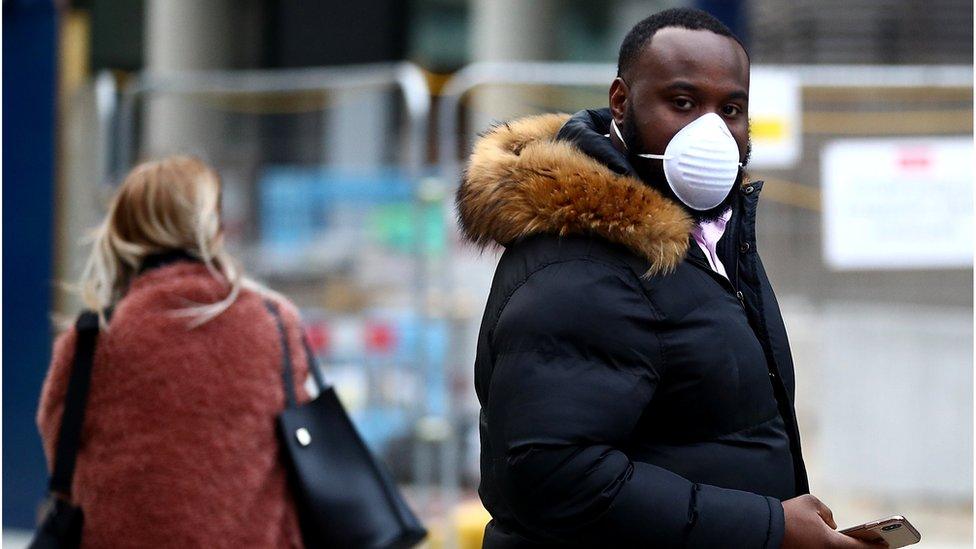Coronavirus: Why you now have to wear a mask in Austrian shops
- Published
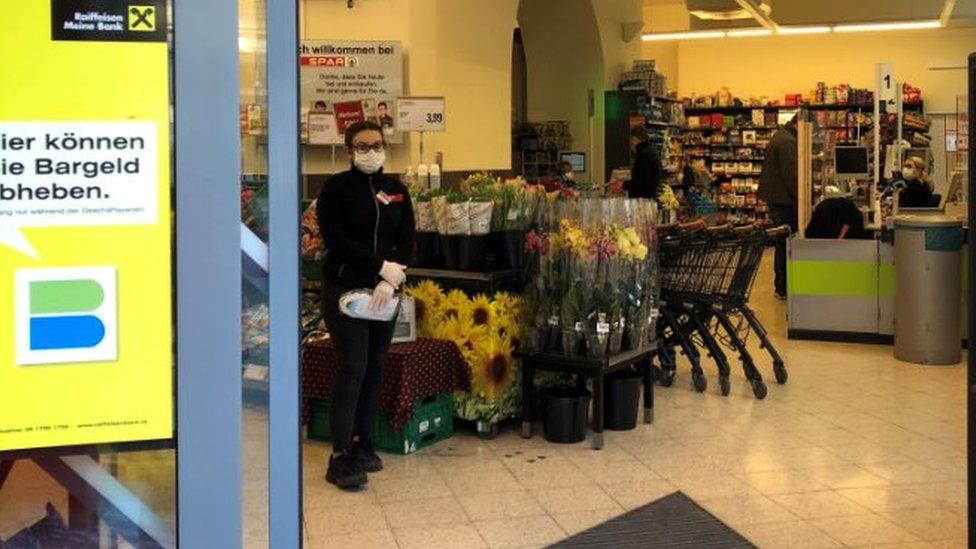
Austria's measures are not as strict as those in the Czech Republic and Slovakia
It is a debate being had across the world - whether wearing a face mask will stem the spread of Covid-19.
In Austria it is now compulsory to wear basic masks in supermarkets and other food and drug stores.
The idea appears to be gaining support across Europe, although there is uncertainty about how useful the measure will be.
"If you are going to have protection, you should do it properly," said Robert, standing outside an artisanal cheese shop in Vienna, his face largely covered by a woodworking respirator mask.
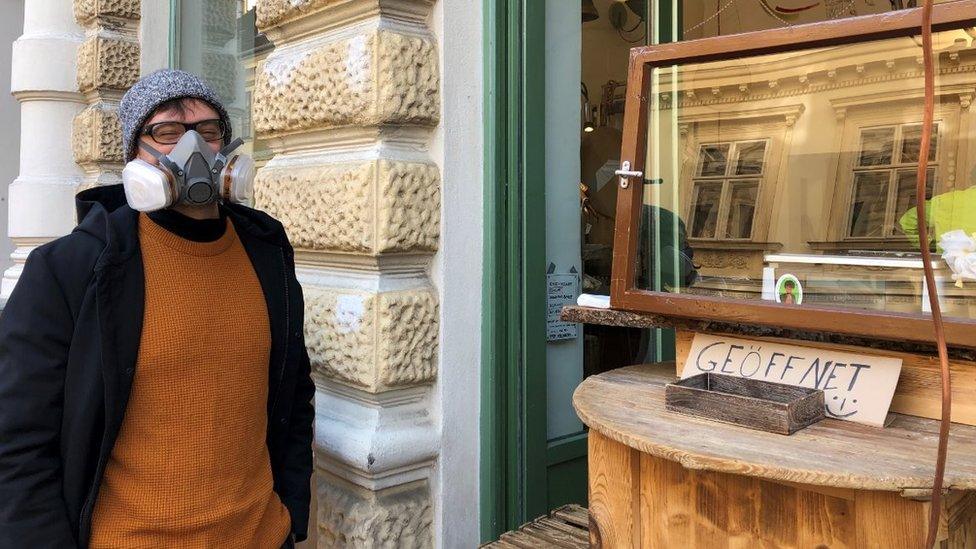
Robert wears a woodworking mask
"I was lucky to have bought this at a hardware store six weeks ago," he said. "It certainly will protect other people, and this mask protects me too. And as I have it, why not?"
The new measure introduced by the Austrian government involves much simpler masks than this.
When he announced the move, Chancellor Sebastian Kurz stressed that customers at supermarkets would not be asked to wear medical masks, which are needed for hospital personnel, but basic nose and mouth coverings.
He said the aim was to prevent the wearer coughing or sneezing on others and infecting them, and he suggested masks might be required more widely in public places, once the lockdown began to be lifted.
Austria's neighbours, Slovakia and the Czech Republic, have gone even further, making the wearing of face masks compulsory once you leave home.
In Germany, the eastern city of Jena has decided that people should cover their faces when shopping or on public transport.
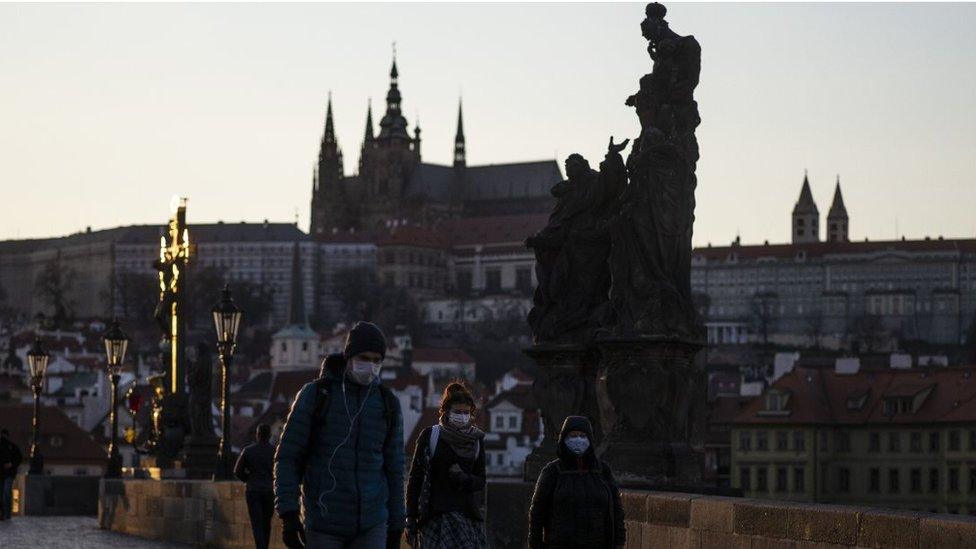
Masks are now compulsory on the Charles Bridge in Prague and anywhere else outside the home
Now America's CDC public health agency has also recommended that homemade cloth face coverings are worn in shops, external and pharmacies.
Up to now the World Health Organization (WHO) has said people who are sick and show symptoms should wear masks.
But it advises that healthy people only need to wear them if they are caring for others suspected of being infected or if they themselves are coughing or sneezing. It has said the incorrect use of masks can be counterproductive, leading the wearer to become infected.
With face masks in high demand, we look at whether they really can protect people from the virus
A panel of advisers to the WHO is currently assessing the question.
Some people in Austria are now sewing cotton masks for themselves.
Otherwise supermarkets have to provide shoppers with masks if they don't have their own.
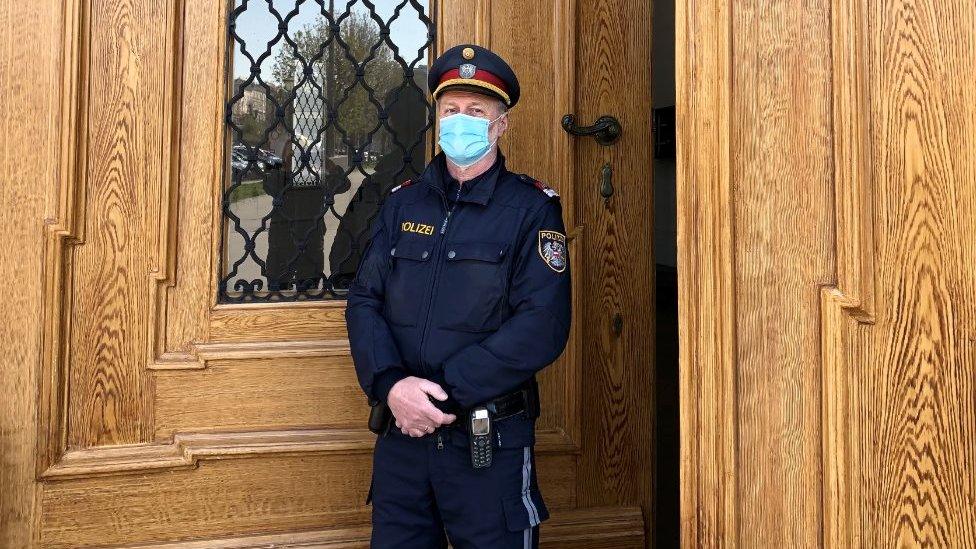
The compulsory mask order could prove a culture shock for Austrians
Louise, who lives in Langenzersdorf just outside Vienna, said wearing masks to protect others was a good idea.
But after visiting her local store, she said instructions on how to put them on them should be clearer.
"There should be more advice on how to wear them properly and what to do with them afterwards," she wrote to me. "It wasn't a nice feeling to wear the mask and I think it made me touch my face more to make it fit properly."
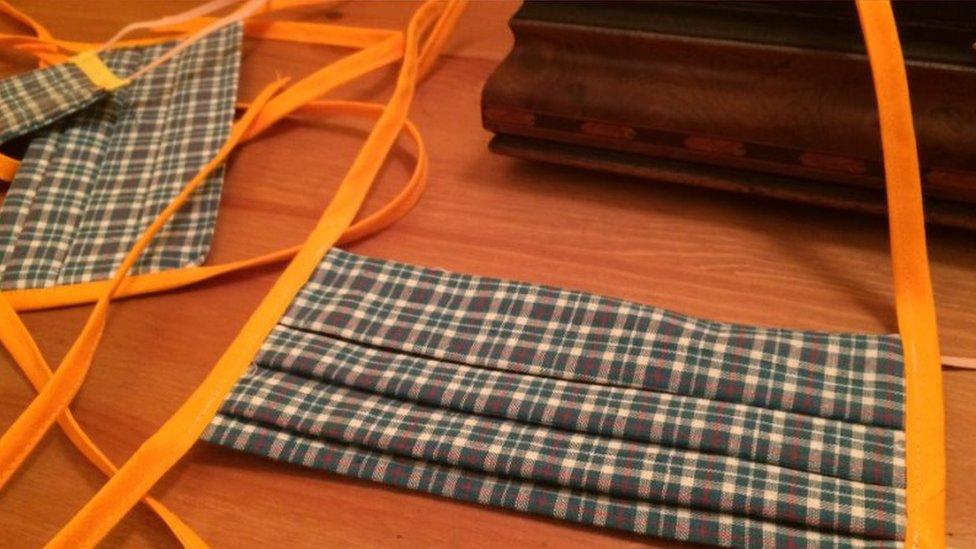
If you see anyone wearing this mask, it might just be the BBC's Bethany Bell
Sebastian Kurz admits that the move is something of a cultural shift for Austria which introduced a ban on face-coverings, including Muslim burkas and niqabs in 2017.
"I am fully aware that masks are something alien to our culture," he said.
It'll be a major change, but it is necessary that we take this step to further reduce the further spread

Astrid in Salzburg told me she was confused.
"For a long time in Austria we were told masks were not needed, that they do not really protect you, and that we should leave the masks we do have to hospital staff.
"Then all of a sudden, it was announced that we should wear masks in supermarkets. I'm not sure where this change of mind comes from, but still, if they ask us to wear them, we'll do it, of course."
Astrid said she had worn a mask on her last shopping trip but it had been a relief to take it off.
"I'm not used to it. It's hard breathing with masks, and it's hot under there."

A SIMPLE GUIDE: How do I protect myself?
AVOIDING CONTACT: The rules on self-isolation and exercise
LOOK-UP TOOL: Check cases in your area
MAPS AND CHARTS: Visual guide to the outbreak
VIDEO: The 20-second hand wash

- Published2 April 2020
